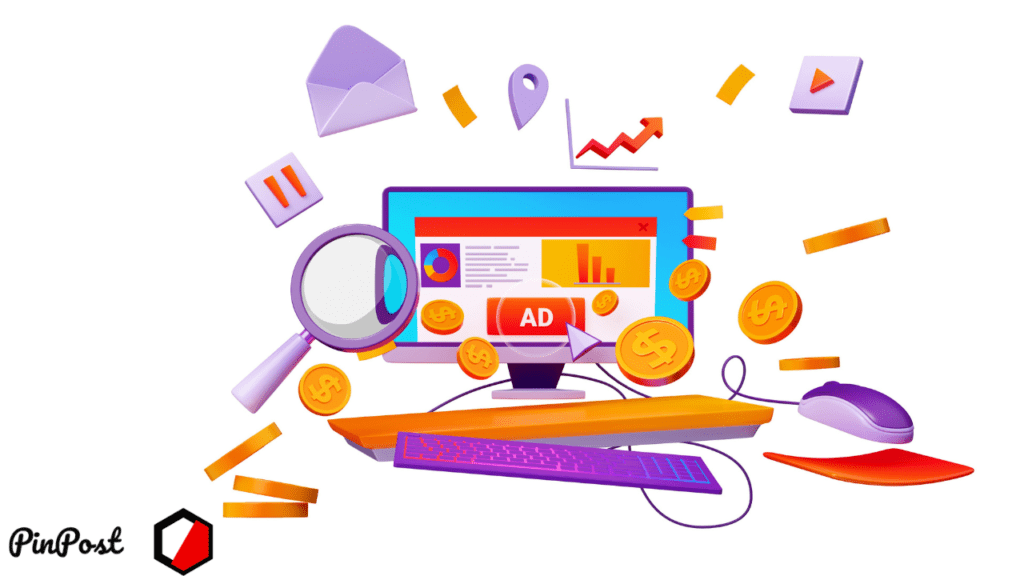
Pay-Per-Click marketing, or PPC marketing, is a potent digital advertising method that has completely changed how companies advertise their goods and services online. It is an online marketing strategy where marketers are paid every time their advertisement is clicked. Pay per click advertisements can be seen on websites, social networking sites, search engines, and other online channels. It’s part of Digital Marketing. We’ll go into the realm of PPC marketing in this extensive tutorial, examining its fundamental ideas, advantages, tactics, and best practices.
1. Pay-Per-Click (PPC):
definition PPC marketing is fundamentally a type of online advertising where advertisers place bids on particular keywords or placements to have their ads shown to a specified audience. Because only when a user clicks on an advertisement are advertisers charged, hence the term “pay-per-click.”
2. Search Engine Advertising:
One of the most common forms of PPC is search engine advertising, where ads appear at the top of search engine results pages (SERPs) when users enter relevant search queries. Google Ads and Bing Ads are prominent examples of search engine PPC platforms.
3. Advertising on display:
Pay per click goes beyond search engines. Placing advertisements on websites, apps, and social media platforms is known as display advertising. Targeting an audience is possible for advertisers based on demographics, interests, and online activity.
Read these articles:
Key Components of PPC Marketing:
1. Keywords: The foundation of PPC marketing lies in choosing the right keywords that align with your business goals. Keyword research tools help identify relevant keywords that potential customers might use when searching for products or services.
2. Ad Creatives: Crafting compelling ad copy and visuals is essential to capture the attention of your target audience. Effective ad creatives can significantly impact your ad’s click-through rate (CTR) and conversion rate.
3.Optimizing campaign: Advertisers manage their bids by setting them for each keyword or placement they want to target. The bid is an indication of how much they are willing to part with should a user click on their advertisement. Optimizing campaign performance and budget allocation depends on effective bid management.
4. Quality Score: Search engines like Google assign a Quality Score to each pay per click ad. This score considers factors like ad relevance, click-through rate, and landing page quality. A higher Quality Score can result in better ad placement and lower costs.
Benefits of PPC Marketing:
1. Immediate Results: PPC campaigns can generate quick results, making it an ideal choice for businesses looking for instant visibility and traffic.
2. Targeted Advertising: PPC allows precise targeting, ensuring your ads are seen by a highly relevant audience, increasing the likelihood of conversions.
3. Budget Control: Advertisers have full control over their budgets, allowing them to set daily or monthly limits and adjust spending as needed.
4. Measurable ROI: PPC platforms provide detailed analytics, enabling advertisers to track performance, measure ROI, and make data-driven adjustments to improve campaign effectiveness.
PPC Strategies and Best Practices:
1. Keyword Research: Conduct thorough keyword research to identify high-performing keywords relevant to your business. Use long-tail keywords to improve your targeting.
2. Ad Testing: Continuously test different ad creatives to identify which ones resonate best with your audience. A/B testing can help optimize ad performance.
3. Geo-Targeting: Utilize geo-targeting to show your ads to users in specific locations, ensuring you reach your local or global target audience.
4. Ad Extensions: Take advantage of ad extensions to provide additional information in your ads, such as contact details, site links, and reviews.
Summary:
PPC marketing is a dynamic and results-driven advertising method that empowers businesses to reach their target audience with precision and control. By understanding its key concepts, components, benefits, and best practices, you can harness the power of PPC to boost your online visibility, drive traffic, and achieve your marketing objectives. Whether you’re a small business or a multinational corporation, pay per click marketing can be a valuable addition to your digital marketing strategy.

